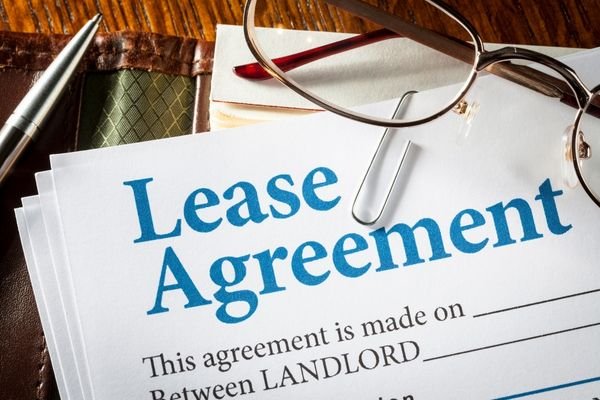Commercial Leases
Commercial property leases are intricate and often lengthy documents that establish the contractual relationship between a landlord and tenant for the entire lease term. As such, it’s critical that they are drafted and negotiated by specialist lawyers, experienced in commercial leases, and with extensive knowledge of the legal requirements.
Our solicitors undertake lease work for both landlords and for tenants, across all property sectors. We’ll get to know you and your business and we’ll discuss your requirements so that we know exactly how we can best help you. Our advice will always be sensible, pragmatic and commercially appropriate.
arrow_back Back to Commercial Property
Why it’s vital to use Solicitors for commercial property leases?
While it's not essential to seek legal advice, it's highly recommended given the significant financial value and long-term commitment involved in such transactions. Our experienced team can help you run all necessary checks and surveys, investigate title to the property, and negotiate the lease terms to achieve the desired outcome.
A commercial lease sets out the respective parties obligations in relation to the premises being demised. Our solicitors can help ensure you understand them and their implications and negotiate the terms so as to protect your interests and to ensure the premises can be used as intended and as envisaged by both parties. By reviewing your lease, we can flag any issues early on and resolve them prior to completion.
The commercial property lease process involved
The process starts with the main commercial terms being agreed and documented – typically referred to as Heads of Terms, which are often prepared by property surveyors. The Heads of Terms are then circulated to all parties, including solicitors.
The landlord’s solicitor will then prepare the letting pack – which will comprise the draft lease itself, title information and replies to commercial property standard enquiries (CPSEs) with associated documentation (such as an EPC, asbestos survey, planning permission, and fire risk assessment).
The tenant’s solicitors will then commission the usual property searches and review the replies and draft lease.
The solicitors will then negotiate the lease and once agreed circulate it for signature. The lease will then be completed and the tenant’s solicitor will deal with the post completion tasks of payment of SDLT or LTT and registration at the Land Registry (if appropriate).
call Speak to one of our Commercial Property Solicitors on 01752 827073
Why choose Nash & Co Solicitors?
Our team of experienced commercial property solicitors have extensive experience and knowledge of the legal requirements and procedures involved in all lease work. This ensures that our clients receive comprehensive advice and support throughout the process, and that their interests are protected at all times.
We’re committed to providing the very highest levels of client service and an exceptional experience. We understand that a commercial property lease can be complex and stressful, and we work closely with our clients to ensure that they are kept informed throughout the process and that any concerns or questions are addressed promptly. We have some great relationships with key stakeholders and other professional services firms in the area. These relationships certainly help transactions progress quicker and smoother.
Frequently asked questions
In this comprehensive video series, our experienced commercial property solicitors will address a wide range of topics and questions that commonly arise in commercial property ventures. We understand that commercial real estate can be complex and nuanced, so we've curated this series to provide you with practical information and valuable insights.
-
In the UK, the key terms of a commercial property lease can vary depending on the specific property, landlord, and tenant. However, there are some standard terms that are commonly included in commercial property leases. These include:
Demise – it is important the lease is clear on the extent of the premises to be demised. This is typically a combination of a description and reference to a plan.
Rent - the amount of rent payable, whether VAT is payable, how often it is to be paid, and any rent reviews.
Term - the length of the lease, and any options to renew.
Break clause - an option for either the landlord or the tenant to terminate the lease early.
Repair - the obligations of the landlord and tenant with respect to repairing and maintaining the property and wider building/estate.
Use - the permitted use of the property.
Alterations - the conditions under which the tenant can make alterations to the property.
Assignment and subletting - the conditions under which the tenant can assign or sublet the property.
Service charges - the costs associated with maintaining the common areas the property has the use of.
Insurance - the obligations of the landlord and tenant with respect to insuring the property.
These are just some of the key terms that may be included in a commercial property lease, and the specific terms will depend on the individual lease agreement. It is important for landlords and tenants to seek legal advice when negotiating and drafting a commercial property lease to ensure that their interests are protected and that the terms of the lease are clear and enforceable.
-
A full repairing and insuring (FRI) lease is a type of commercial property lease commonly used in England and Wales. In an FRI lease, the tenant is responsible for repairing and maintaining the property, and the landlord for taking out insurance to cover any damage or loss to the property, with the premium being recharged to the tenant.
Under an FRI lease, the tenant is required to keep the property in a good state of repair, and to pay for any necessary repairs or maintenance. This includes not only the interior of the property but also the exterior and the common areas via a service charge.
The insurance procured by the landlord will cover any damage or loss to the property, including damage caused by fire, flood, or other events. It will also cover loss of rent (typically 3 years) in the event the tenant is unable to occupy as a result of insured damage. The insurance policy must be sufficient to cover the full value of the property, and the premiums are usually recharged to the tenant.
In an FRI lease, the tenant takes on a significant level of responsibility and liability for the property. It is therefore important that the tenant undertakes due diligence on the property to ensure it is aware of the extent of its liability – particularly with regard to the state of repair of the property as an FRI lease could in fact require the tenant to improve the condition of the property if it is in disrepair when the lease is completed.
It is important for landlords and tenants to seek legal advice when negotiating and drafting an FRI lease to ensure that the terms of the lease are clear and enforceable, and that their interests are protected.
-
If you want to exit a commercial property lease early, there are several options available to you, although the specific options may depend on the terms of your lease.
Assignment: One option is to assign your lease to a new tenant. This means you would transfer the lease to a new tenant, who would then take over your obligations under the lease agreement. You would need to obtain the landlord's consent to assign the lease, and may be required to pay a fee for this.
Subletting: Another option is to sublet the property to a new tenant. This means you would continue to hold the lease, but would lease the property to a new tenant for a specified period of time. Again, you would need to obtain the landlord's consent to sublet the property.
Surrender: You may be able to negotiate a surrender of your lease with your landlord. This means you would terminate the lease early by mutual agreement with your landlord. You may be required to pay a fee or other compensation to your landlord to compensate for any losses they may incur as a result of the early termination of the lease.
Break clause: If your lease agreement includes a break clause, you may be able to terminate the lease early by giving notice to your landlord in accordance with the terms of the break clause. However, break clauses are often subject to strict conditions and time limits, so it is important to review your lease agreement carefully.
Negotiation: You could also try to negotiate an early termination of the lease with your landlord. This may involve paying a fee or other compensation, but could be a mutually beneficial option if the landlord is looking to redevelop or lease the property to a new tenant.
It is important to seek legal advice when considering your options for exiting a commercial property lease early, as the specific terms of your lease agreement and applicable law can affect the options available to you and the potential consequences of each option.
-
"Security of tenure" refers to the rights of tenants to remain in occupation of their leased property when their lease expires, subject to certain conditions.
The Landlord and Tenant Act 1954 provides a framework for security of tenure for commercial tenants. It gives qualifying tenants a statutory right to renew their lease at the end of the term, on similar terms to the previous lease. This means that a tenant who has occupied the property for a certain length of time and who has complied with the terms of the lease will generally have the right to a new lease, subject to certain limited grounds for the landlord to oppose the renewal.
The purpose of security of tenure is to provide tenants with a degree of certainty and stability, and to prevent landlords from arbitrarily evicting tenants or significantly increasing rent at the end of a lease term.
However, it is important to note that security of tenure can be excluded or modified by agreement between the landlord and tenant. This means that a lease can be granted without security of tenure, or with limited security of tenure, if the parties agree to this in the lease agreement. It is therefore important for tenants to carefully review the lease agreement and seek legal advice to ensure that they understand their rights and obligations, including any limitations on security of tenure.
-
Renewing a commercial property lease can be a complex process, and it is important to carefully consider a range of factors to ensure that the renewed lease meets your business needs and objectives. Some of the key considerations when renewing a commercial property lease include:
Timing: It is important to start the lease renewal process early to allow sufficient time for negotiation and to avoid any gaps in occupancy.
Rent and other lease terms: When renewing a lease, it is important to consider the rent and other lease terms. The starting point tends to be that the lease terms will broadly follow those of the existing lease.
Security of tenure: whether the existing lease has security of tenure under the Landlord and Tenant Act 1954 will have a significant bearing on the lease renewal process and the terms of the renewal lease so it is important to check this at the outset..
SDLT and LTT: there are complex rules governing the tax payable on renewal leases, particularly if the term of the existing / previous lease has expired, and the when the existing / previous lease was completed.
Professional advice: Finally, it is important to seek professional advice from a solicitor experienced in commercial property leases to ensure that you fully understand the terms of the renewal lease and the implications for your business.
What our clients say
Related insights
Meet the Commercial Property team
Get in touch
Fill out the form below and let us know whether you would like us to call you, or email you. One of our Commercial Property team will be in touch as soon as we can.
If your enquiry is urgent then please call us on 01752 827073.
arrow_back Back to Commercial Property
















